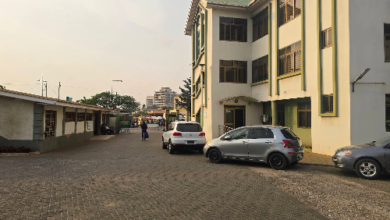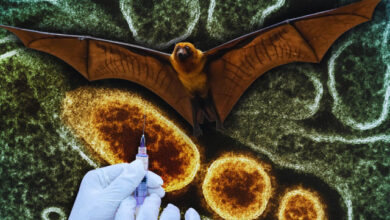
Health News
LET US BUILD A GHANA WHERE NO ONE IS LEFT TO WANDER THE STREETS BECAUSE THEIR MIND IS UNWELL- DEPUTY CEO OF MENTAL HEALTH AUTHORITY CALLS OUT
The Mental Health Act, 2012 (Act 846), a legal foundation for protection and inclusion we have passionate professionals serving against all odds
The deputy chief executive officer of Mental Health Authority, Dr. Vivian Mame Aba Dadzie has admonished the need to create a community that prioritizes the need of people by moving away from stigma to support, from isolation to inclusion and from abandonment to belonging.
Speaking at that 60th Anniversary of Ankaful psychiatric in Cape Coast on the theme, “The Role of Primary Mental Healthcare and Community Involvement in Curbing Streetism of Mentally ill Persons,”is both timely and urgent and it important that we as Ghanaians see that importance advocating for such.
She noted that, it is our collective responsibility, a mirror reflecting our gaps in early detection, family support and community care adding that, the solution does not begin in our psychiatric hospitals but it begins within our communities.
Far too long, we have treated mental health as a last resort, a place we turn to only when a crisis explodes but mental health must not be the destination of despair; it must be the foundation of prevention, she added.
Primary mental healthcare is that foundation it means integrating mental health into our CHPS Compounds, our district clinics, and our community health systems.
It means training our community nurses to recognize early signs of depression, psychosis, anxiety, and substance abuse. It means ensuring that every Ghanaian, from the farmer facing unbearable stress, to the mother overwhelmed after childbirth, can walk into a nearby clinic and find compassion, competence, and care without stigma.
By catching illness early, we save lives, we protect families, we prevent suffering before it reaches the streets but healthcare alone is not enough a person may receive treatment yet relapse into despair if the community rejects them without acceptance, recovery collapses noting that, that is why community involvement is not optional but it is essential.
She further noted that, as Ghanaians, community is our soul, yet when it comes to mental illness, that soul has sometimes fallen silent.
We whisper.
We point. We look away.
This must change, she asserted.
We must all be involved.
Families must learn that mental illness is not witchcraft or weakness; it is a medical condition deserving of love and treatment.
Faith and traditional leaders must use their pulpits to preach compassion, not condemnation.
Local businesses must open doors to the rehabilitated, offering them work and dignity.
And we, ordinary citizens, must know who to call, the community nurse, the psychologist, the social welfare officer, instead of turning away.
Community involvement means refusing to look away.
It means seeing the human being behind the illness.
It means offering not pity, but partnership.
She however noted that, the task ahead is immense, but our potential is greater.
We already have the Mental Health Act, 2012 (Act 846), a legal foundation for protection and inclusion we have passionate professionals serving against all odds and we have a communal culture the world envies, one that when revived, can transform this nation’s mental health landscape.
Let us, therefore, be the generation that breaks the cycle of neglect.
Let us build a Ghana where no one is left to wander the streets because their mind is unwell.
Let us move from stigma to support, from isolation to inclusion, from abandonment to belonging.
As we celebrate 60 years of Ankaful Psychiatric Hospital, we are reminded that true greatness is not measured by the number of patients treated but by the number of lives restored to hope, dignity, and purpose.
Let this anniversary ignite a renewed commitment to early detection, to community engagement, to policy enforcement, and to national empathy.
Let us see every person with mental illness not as a statistic but as a story, not as a burden but as a life waiting to bloom again.
by: Kwamena Essuman, Cape Coast




